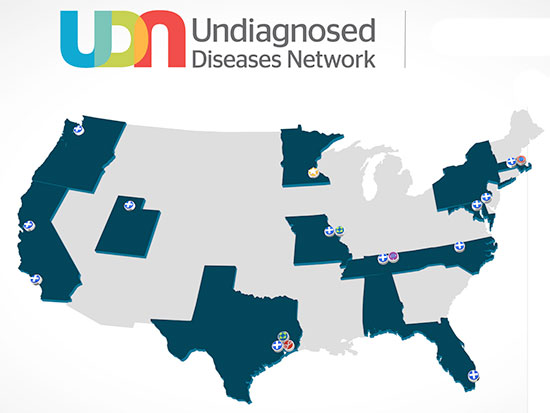 The National Institutes of Health’s Undiagnosed Diseases Network has added five new clinical sites and two research cores. The University of Alabama at Birmingham, in conjunction with Harvard Medical School, is the coordinating center for the UDN. UAB’s team is led by Matt Might, Ph.D., director of the Hugh Kaul Precision Medicine Institute.
The National Institutes of Health’s Undiagnosed Diseases Network has added five new clinical sites and two research cores. The University of Alabama at Birmingham, in conjunction with Harvard Medical School, is the coordinating center for the UDN. UAB’s team is led by Matt Might, Ph.D., director of the Hugh Kaul Precision Medicine Institute.
The UDN was launched to build on the success of the Undiagnosed Diseases Program at the NIH Clinical Center. The UDN takes advantage of cutting-edge technologies such as genomic sequencing, metabolomics and assessing patient variants in model organisms to give clinicians new, powerful information to help understand the cause of extremely rare diseases. Since opening to applications in 2015, the network has already diagnosed over 200 cases that had long been mysteries to the medical community.
The five new clinical sites are Children’s Hospital of Philadelphia and the University of Pennsylvania; University of Miami; University of Utah; University of Washington and Seattle Children’s Hospital; and Washington University in St. Louis.
The UDN awards are managed by NHGRI, the National Center for Advancing Translational Sciences, and the National Institute of Neurological Disorders and Stroke.
